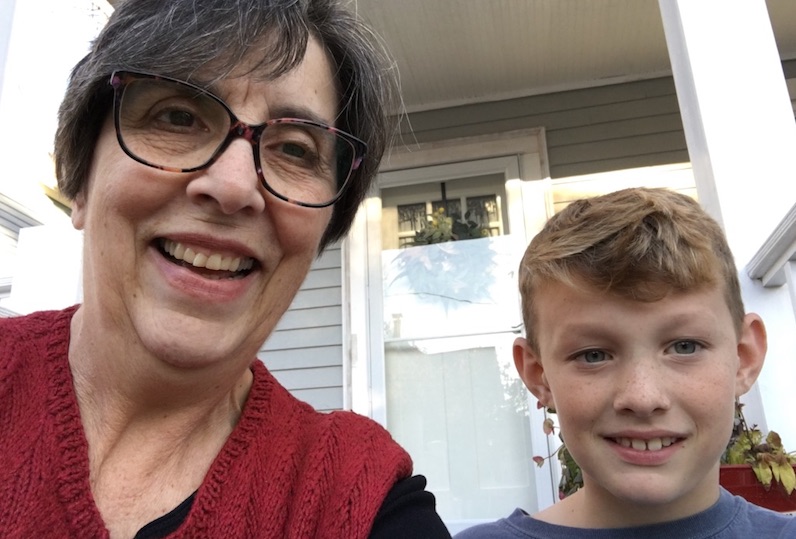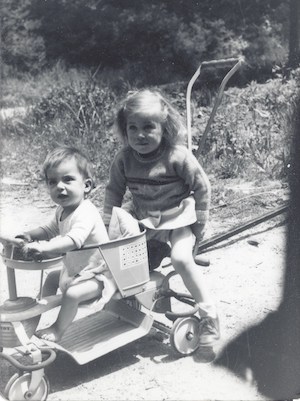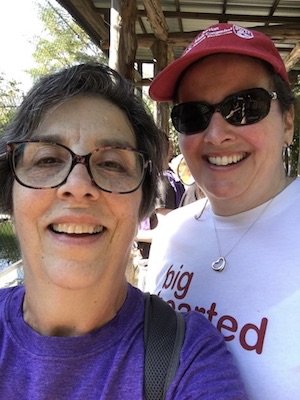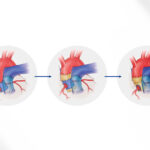BACH Program: Heart care for patients of all ages

At 73, Fran Sansalone might not seem like a typical Boston Children’s Hospital patient. But she’s one of a growing number of adults who visit the Heart Center regularly.
Fran has been a patient in the Boston Adult Congenital Heart (BACH) Program for the past 18 years. Like other adults born with a congenital heart defect (CHD), Fran benefits from seeing a cardiologist familiar with CHD. That’s because these heart conditions are very different from the more common forms of heart disease seen in an adult cardiology practice. Staff in the BACH program have expertise in both pediatric and adult cardiac care.
Born with tetralogy of Fallot
Born in Yonkers, New York with tetralogy of Fallot, Fran had an initial open heart surgery at age 19, followed by another surgery in her early 20s.

“I was always a skinny, sickly child,” she recalls. “I remember that my fingertips and lips would turn a blue-ish shade just from running up stairs and I would get tired very easily in gym class. I was also sick a lot —I was more susceptible to illness than other kids.”
Fran says that all changed after her first surgery. “It really made all the difference, and after that first surgery I was able to lead a normal life and not really think about my heart.” In fact, Fran felt so well that she wasn’t followed by a cardiologist throughout much of her adult life. Then in 2001, she happened to read about a Boston Children’s research project on tetralogy of Fallot. She was living in the Boston area at the time, and reached out for more information.
An introduction to the BACH Program
“When I contacted the investigator, she said I should be seeing a cardiologist at least once a year and put me in touch with the BACH Program,” says Fran. She’s been coming back every year since, and now sees Dr. Anne Marie Valente, chief of the BACH Program. Fran is followed regularly and has diagnostic testing based on national guidelines, including cardiac imaging, such as cardiac MRI, every three years, and exercise testing at regular intervals. So far, her heart has continued to be healthy.
“I wasn’t followed for years, and was blasé about it,” says Fran. “But as I‘ve gotten older, I feel more comfort in having yearly checkups to make sure everything is okay.” Fran says she feels lucky to be in such good health. “I feel like I’ve dodged a number of bullets in my lifetime,” she says. “Many people born with heart conditions back then weren’t so lucky.”
Now that she’s retired from a career in editorial work, she enjoys gardening, baking (blueberry polenta cake and ginger almond cookies are among her favorites), and spending time with her 10-year-old grandson.
Becoming more health conscious

These days, Fran is also paying more attention to her overall health. In the past year, she dropped 20 pounds and goes to the gym three times a week to use the weight machines and the elliptical. In September, she participated in her first charity walk, the Adult Congenital Heart Association’s Walk for 1 in 100, to raise awareness and fund research efforts for adults with CHD.
When asked what it’s like to be seen at a children’s hospital at 73, she laughs, and admits that she sometimes gets odd looks in the waiting room. But that doesn’t put her off. “Boston Children’s has been fabulous,” she says. “All of the staff are pleasant and supportive. I feel like I’ve gotten really good care here.”
Learn more about the BACH Program.
Related Posts :
-

First-of-its-kind pressurization test could improve Ross procedure outcomes
The Ross procedure is a preferred surgery to treat severe aortic valve disease. The procedure replaces the failing valve ...
-

Four things you should know about MAPCAs treatment
As the first grandchild in her family, Hannah Homan is in demand for frequent visits. She was also the focus ...
-

Treating MAPCAs with unifocalization surgery and cardiology care
Children born with a rare form of tetralogy of Fallot (ToF) face a challenging type of congenital heart ...
-

After surgeries to treat HLHS, Carter is healthy and happy at home in Florida
Carter Miller loves action. The 4-year-old Florida resident enjoys riding on golf carts and flying high on swing sets. ...





